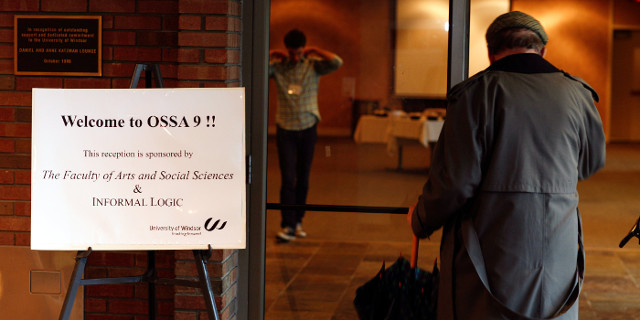
Location
University of Windsor
Document Type
Paper
Keywords
argued challenge, burden of criticism, counterargumentation, counterconsideration, critical reaction, directiveness, explanation, Fallacy of Thwarting, presumption.
Start Date
18-5-2011 9:00 AM
End Date
21-5-2011 5:00 PM
Abstract
Some critical reactions hardly give clues to the arguer as to how to respond to them convinc-ingly. Other critical reactions convey some or even all of the considerations that make the critic critical of the arguer’s position and direct the arguer to defuse or to at least contend with them. First, an explication of the notion of a critical reaction will be provided, zooming in on the degree of ‘directiveness’ that a critical reaction displays. Second, it will be examined whether and to what extent there is a normative requirement to strive after criticism that is more than minimally directive. In this paper, it is hypothesized that the com-petitiveness inherent in critical discussion must be mitigated by making the opponent responsible for providing her counterconsiderations, if available, thus assisting the proponent in developing an argumenta-tive strategy that defuses them.
Creative Commons License

This work is licensed under a Creative Commons Attribution 4.0 International License.
Included in
The burden of criticism
University of Windsor
Some critical reactions hardly give clues to the arguer as to how to respond to them convinc-ingly. Other critical reactions convey some or even all of the considerations that make the critic critical of the arguer’s position and direct the arguer to defuse or to at least contend with them. First, an explication of the notion of a critical reaction will be provided, zooming in on the degree of ‘directiveness’ that a critical reaction displays. Second, it will be examined whether and to what extent there is a normative requirement to strive after criticism that is more than minimally directive. In this paper, it is hypothesized that the com-petitiveness inherent in critical discussion must be mitigated by making the opponent responsible for providing her counterconsiderations, if available, thus assisting the proponent in developing an argumenta-tive strategy that defuses them.
